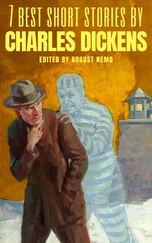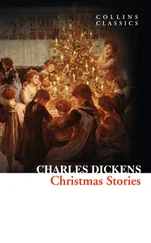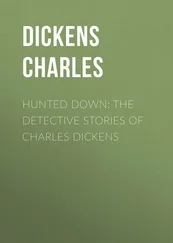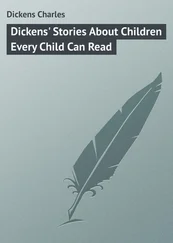Charles Dickens - Short Stories
Здесь есть возможность читать онлайн «Charles Dickens - Short Stories» весь текст электронной книги совершенно бесплатно (целиком полную версию без сокращений). В некоторых случаях можно слушать аудио, скачать через торрент в формате fb2 и присутствует краткое содержание. Жанр: Классическая проза, на английском языке. Описание произведения, (предисловие) а так же отзывы посетителей доступны на портале библиотеки ЛибКат.
- Название:Short Stories
- Автор:
- Жанр:
- Год:неизвестен
- ISBN:нет данных
- Рейтинг книги:4 / 5. Голосов: 1
-
Избранное:Добавить в избранное
- Отзывы:
-
Ваша оценка:
- 80
- 1
- 2
- 3
- 4
- 5
Short Stories: краткое содержание, описание и аннотация
Предлагаем к чтению аннотацию, описание, краткое содержание или предисловие (зависит от того, что написал сам автор книги «Short Stories»). Если вы не нашли необходимую информацию о книге — напишите в комментариях, мы постараемся отыскать её.
Short Stories — читать онлайн бесплатно полную книгу (весь текст) целиком
Ниже представлен текст книги, разбитый по страницам. Система сохранения места последней прочитанной страницы, позволяет с удобством читать онлайн бесплатно книгу «Short Stories», без необходимости каждый раз заново искать на чём Вы остановились. Поставьте закладку, и сможете в любой момент перейти на страницу, на которой закончили чтение.
Интервал:
Закладка:
Our bore is great in secret information. He happens to know many things that nobody else knows. He can generally tell you where the split is in the Ministry; he knows a great deal about the Queen; and has little anecdotes to relate of the royal nursery. He gives you the judge's private opinion of Sludge the murderer, and his thoughts when he tried him. He happens to know what such a man got by such a transaction, and it was fifteen thousand five hundred pounds, and his income is twelve thousand a year. Our bore is also great in mystery. He believes, with an exasperating appearance of profound meaning, that you saw Parkins last Sunday? – Yes, you did. – Did he say anything particular? – No, nothing particular. – Our bore is surprised at that. – Why? – Nothing. Only he understood that Parkins had come to tell you something. – What about? – Well! our bore is not at liberty to mention what about. But, he believes you will hear that from Parkins himself, soon, and he hopes it may not surprise you as it did him. Perhaps, however, you never heard about Parkins's wife's sister? – No. – Ah! says our bore, that explains it!
Our bore is also great in argument. He infinitely enjoys a long humdrum, drowsy interchange of words of dispute about nothing. He considers that it strengthens the mind, consequently, he 'don't see that,' very often. Or, he would be glad to know what you mean by that. Or, he doubts that. Or, he has always understood exactly the reverse of that. Or, he can't admit that. Or, he begs to deny that. Or, surely you don't mean that. And so on. He once advised us; offered us a piece of advice, after the fact, totally impracticable and wholly impossible of acceptance, because it supposed the fact, then eternally disposed of, to be yet in abeyance. It was a dozen years ago, and to this hour our bore benevolently wishes, in a mild voice, on certain regular occasions, that we had thought better of his opinion.
The instinct with which our bore finds out another bore, and closes with him, is amazing. We have seen him pick his man out of fifty men, in a couple of minutes. They love to go (which they do naturally) into a slow argument on a previously exhausted subject, and to contradict each other, and to wear the hearers out, without impairing their own perennial freshness as bores. It improves the good understanding between them, and they get together afterwards, and bore each other amicably. Whenever we see our bore behind a door with another bore, we know that when he comes forth, he will praise the other bore as one of the most intelligent men he ever met. And this bringing us to the close of what we had to say about our bore, we are anxious to have it understood that he never bestowed this praise on us.
FOLLY
A Monument of French Folly
IT was profoundly observed by a witty member of the Court of Common Council, in Council assembled in the City of London , in the year of our Lord one thousand eight hundred and fifty, that the French are a frog-eating people, who wear wooden shoes.
We are credibly informed, in reference to the nation whom this choice spirit so happily disposed of, that the caricatures and stage representations which were current in England some half a century ago, exactly depict their present condition. For example, we understand that every Frenchman, without exception, wears a pigtail and curl-papers. That he is extremely sallow, thin, long– faced, and lantern-jawed. That the calves of his legs are invariably undeveloped; that his legs fail at the knees, and that his shoulders are always higher than his ears. We are likewise assured that he rarely tastes any food but soup maigre, and an onion; that he always says, 'By Gar! Aha! Vat you tell me, sare?' at the end of every sentence he utters; and that the true generic name of his race is the Mounseers, or the Parly-voos. If he be not a dancing-master, or a barber, he must be a cook; since no other trades but those three are congenial to the tastes of the people, or permitted by the Institutions of the country. He is a slave, of course. The ladies of France (who are also slaves) invariably have their heads tied up in Belcher handkerchiefs, wear long earrings, carry tambourines, and beguile the weariness of their yoke by singing in head voices through their noses – principally to barrel– organs.
It may be generally summed up, of this inferior people, that they have no idea of anything.
Of a great Institution like Smithfield, they are unable to form the least conception. A Beast Market in the heart of Paris would be regarded an impossible nuisance. Nor have they any notion of slaughter-houses in the midst of a city. One of these benighted frog-eaters would scarcely understand your meaning, if you told him of the existence of such a British bulwark.
It is agreeable, and perhaps pardonable, to indulge in a little self-complacency when our right to it is thoroughly established. At the present time, to be rendered memorable by a final attack on that good old market which is the (rotten) apple of the Corporation's eye, let us compare ourselves, to our national delight and pride as to these two subjects of slaughter-house and beast-market, with the outlandish foreigner.
The blessings of Smithfield are too well understood to need recapitulation; all who run (away from mad bulls and pursuing oxen) may read. Any market-day they may be beheld in glorious action. Possibly the merits of our slaughter-houses are not yet quite so generally appreciated.
Slaughter-houses, in the large towns of England, are always (with the exception of one or two enterprising towns) most numerous in the most densely crowded places, where there is the least circulation of air. They are often underground, in cellars; they are sometimes in close back yards; sometimes (as in Spitalfields) in the very shops where the meat is sold. Occasionally, under good private management, they are ventilated and clean. For the most part, they are unventilated and dirty; and, to the reeking walls, putrid fat and other offensive animal matter clings with a tenacious hold. The busiest slaughter-houses in London are in the neighbourhood of Smithfield, in Newgate Market, in Whitechapel, in Newport Market, in Leadenhall Market, in Clare Market. All these places are surrounded by houses of a poor description, swarming with inhabitants. Some of them are close to the worst burial– grounds in London. When the slaughter-house is below the ground, it is a common practice to throw the sheep down areas, neck and crop – which is exciting, but not at all cruel. When it is on the level surface, it is often extremely difficult of approach. Then, the beasts have to be worried, and goaded, and pronged, and tail– twisted, for a long time before they can be got in – which is entirely owing to their natural obstinacy. When it is not difficult of approach, but is in a foul condition, what they see and scent makes them still more reluctant to enter – which is their natural obstinacy again. When they do get in at last, after no trouble and suffering to speak of (for, there is nothing in the previous journey into the heart of London, the night's endurance in Smithfield, the struggle out again, among the crowded multitude, the coaches, carts, waggons, omnibuses, gigs, chaises, phaetons, cabs, trucks, dogs, boys, whoopings, roarings, and ten thousand other distractions), they are represented to be in a most unfit state to be killed, according to microscopic examinations made of their fevered blood by one of the most distinguished physiologists in the world, PROFESSOR OWEN – but that's humbug. When they ARE killed, at last, their reeking carcases are hung in impure air, to become, as the same Professor will explain to you, less nutritious and more unwholesome – but he is only an UNcommon counsellor, so don't mind HIM. In half a quarter of a mile's length of Whitechapel, at one time, there shall be six hundred newly slaughtered oxen hanging up, and seven hundred sheep – but, the more the merrier – proof of prosperity. Hard by Snow Hill and Warwick Lane, you shall see the little children, inured to sights of brutality from their birth, trotting along the alleys, mingled with troops of horribly busy pigs, up to their ankles in blood – but it makes the young rascals hardy. Into the imperfect sewers of this overgrown city, you shall have the immense mass of corruption, engendered by these practices, lazily thrown out of sight, to rise, in poisonous gases, into your house at night, when your sleeping children will most readily absorb them, and to find its languid way, at last, into the river that you drink – but, the French are a frog-eating people who wear wooden shoes, and it's O the roast beef of England, my boy, the jolly old English roast beef.
Читать дальшеИнтервал:
Закладка:
Похожие книги на «Short Stories»
Представляем Вашему вниманию похожие книги на «Short Stories» списком для выбора. Мы отобрали схожую по названию и смыслу литературу в надежде предоставить читателям больше вариантов отыскать новые, интересные, ещё непрочитанные произведения.
Обсуждение, отзывы о книге «Short Stories» и просто собственные мнения читателей. Оставьте ваши комментарии, напишите, что Вы думаете о произведении, его смысле или главных героях. Укажите что конкретно понравилось, а что нет, и почему Вы так считаете.










